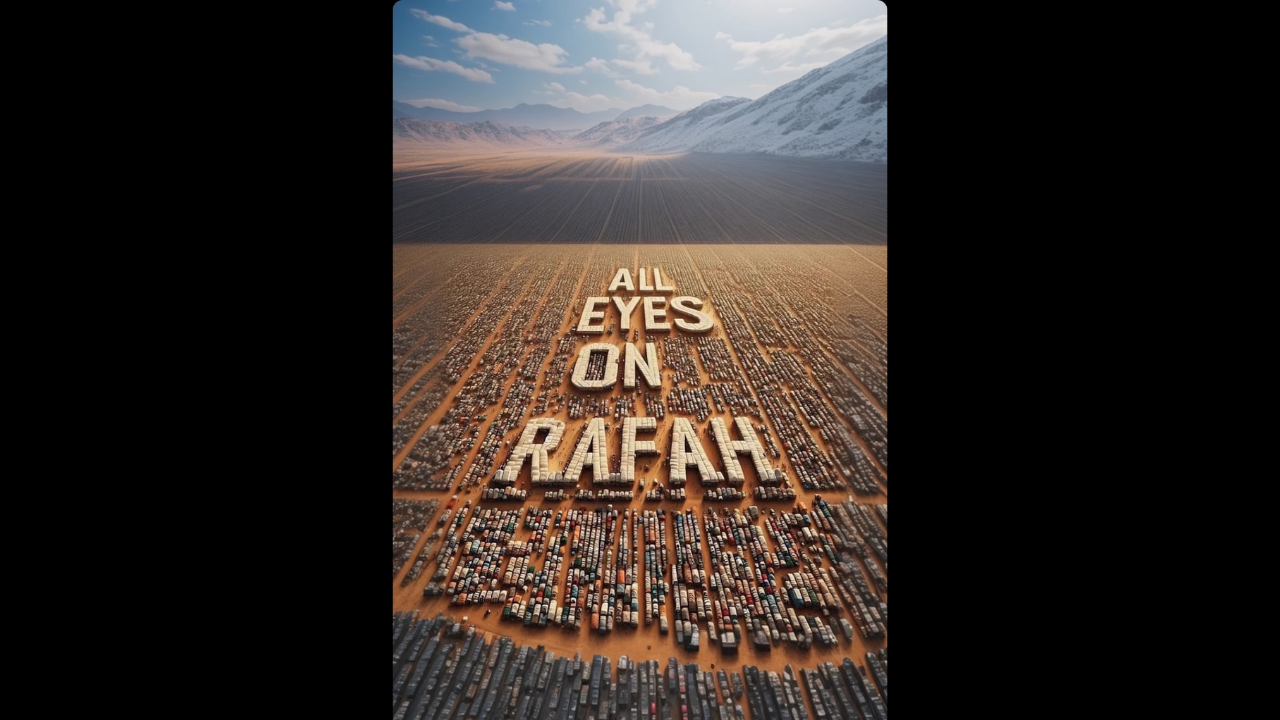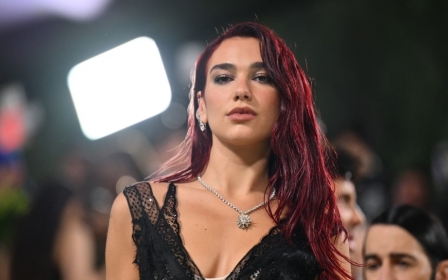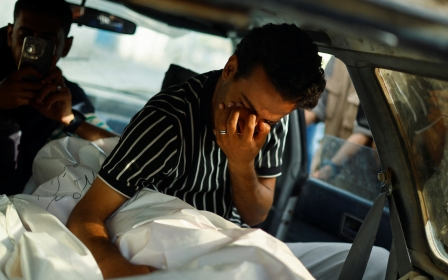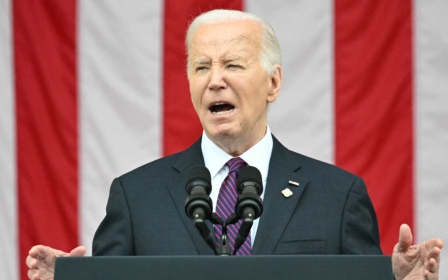'All Eyes on Rafah': Why has the viral graphic sparked so much anger?

If you're a social media user, you've likely noticed an AI-generated image about Gaza gaining traction over the past 24 hours.
The viral image, which has stacked a whopping 40m shares on Instagram, has been shared by celebrities including the singer Kehlani, comedian Hasan Minhaj, Bridgerton star Nicola Coughlan and millions of ordinary users alike.
The image shows lines of tents stretching into the distance, offset by snowy mountains reminiscent of the Alps, while white-topped tents in the centre of the image spell out: All eyes on Rafah.
It comes following widespread condemnation of what has come to be known as the Rafah massacre, where Israeli forces struck a tent camp housing displaced Palestinians in the southernmost city in Gaza on Sunday, killing at least 45 people - mainly women and children - and wounding dozens of others.
Tents were engulfed by fire following the air strikes, and several Palestinians were burned alive. Graphic footage from the assault depicted charred bodies, severed limbs and a headless baby. It sparked further outrage among politicians and pro-Palestinian activists alike, after an already seven-month-long war has left over 36,000 Palestinians dead.
New MEE newsletter: Jerusalem Dispatch
Sign up to get the latest insights and analysis on Israel-Palestine, alongside Turkey Unpacked and other MEE newsletters
The strike - which was followed by another on a designated safe zone on Tuesday - came just days after the International Court of Justice (ICJ) ruled that Israel must immediately halt any military offensive on Rafah.
Several users took to social media to express their horror and share images from the attack, accusing many mainstream media outlets of "whitewashing" the Israeli strike.
All eyes on #Rafah 🇵🇸 pic.twitter.com/bg3bAtl3dQ
— The Palestinian (@InsiderWorld_1) May 27, 2024
It is in this period that the viral AI-generated image seems to have emerged on social media.
It's not clear who created the image, but it was uploaded to Instagram as a template, a format which allows an image to be reshared by different users, and is used by many to show their support for a cause.
The same image was uploaded to X, formerly Twitter, where it has garnered hundreds of thousands of shares and likes.
“all eyes on rafah” but here’s an ai generated photo so your eyes actually don’t have to be on it and you can protect your privileged peace 🥰🥰💐🎉💌💌🤍🤍
— la lesbian fight club (@unloversciub) May 28, 2024
Its viral impact was met with mixed reactions by social media users, with some noting that videos from Rafah shared by Palestinian journalists were ignored in favour of a more "sanitised" image that inaccurately depicts Rafah as a calm tent city surrounded by mountains.
"Palestinian journalists have been risking their lives for months to document every single massacre and instead people are reposting an ai-generated 'art' that says 'all eyes on Rafah' and tells us nothing about what is actually happening on the ground or gives us any action items," wrote one user on X.
"It seems somewhat jarring to call for attention using a fake, sanitised image rather than using the real, shocking imagery out of Rafah?" questioned another.
Other users encouraged people to share information that provided more context about the humanitarian situation in Gaza, or actionable steps concerned viewers could take to support Palestinians.
People start speaking up by reposting this image saying “ALL EYES ON RAFAH”, I hope people know that this is a long term movement, not just reposting a single no context AI image & call it done
— Ida 🗝️ commissions open! (@sulkycatz) May 29, 2024
PLEASE ALSO SHARE CONTEXT ABOUT RAFAH. u can start by reposting useful infographics🇵🇸 pic.twitter.com/TCISebaJ7T
Several others, however, pushed back against this perspective, arguing that images coming directly from Gaza often faced restrictions and at times were even removed by social media platorms.
The AI-generated photo, they said, seems to have circumvented Meta's algorithm, which many activists argue is suppressing pro-Palestinian content and shadow banning creators talking about Gaza.
"The real reason that image was able to spread that quick is because it wasn't detected by the moderation system," responded one user. "If they shared real pics they would get shadow banned or flagged for violent content."
Another user added: "Meta suppresses Palestinians accounts when you share them."
Other users accused those currently sharing the viral image of "performative activism", saying they had remained silent the past eight months as Israel continued its military assault on Gaza.
"Reposting 'All Eyes on Rafah' template doesn’t exempt you from the last 7 months you were silent by the way," posted one user.
Others have dismissed these responses, saying that all awareness is positive and that demands regarding Gaza have been clear, unlike past acts of viral online solidarity like the ‘Blue for Sudan’ campaign supporting the 2019 protests in Sudan and #blackouttuesday for the Black Lives Matter movement.
"The AI 'all eyes on Rafah' post might feel 'performative' or frustrating but honestly Israel-Palestine is a war of public opinion and consensus, if it has become ‘trendy’ to stand against Israel’s massacre of Palestinians then that is a net good," argued one user.
"I don't think it compares to BLM black squares which were weirdly deferential and based around a nebulous aim of 'listening and learning' - the premise of this protest against the onslaught in Rafah is that we want the genocide to stop," he continued.
"That is a clear, achievable demand."
This article is available in French on Middle East Eye French edition.
Middle East Eye delivers independent and unrivalled coverage and analysis of the Middle East, North Africa and beyond. To learn more about republishing this content and the associated fees, please fill out this form. More about MEE can be found here.




